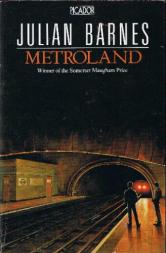When you r ead a good book you must simply acknowledge it: not beating about the bush this time, La condition humaine is a great novel. The opening scene is quite well known: it, moreover, embodies the major achievement of this story set in the 1920s China, namely, its ability to turn action into a statement of the uppermost questions that trouble our poor souls. Chen is about to kill someone, a sleeping human form under the bed sheets, a mound, albeit a breathing one. He knows that he must do it, it is an order, a command which he wants to obey, since it serves a noble cause, but the flesh, oh that human flesh, the materiality of it all, the metaphysical implications of a physical action, the abhorrence of violence when one has never killed a human being before.
ead a good book you must simply acknowledge it: not beating about the bush this time, La condition humaine is a great novel. The opening scene is quite well known: it, moreover, embodies the major achievement of this story set in the 1920s China, namely, its ability to turn action into a statement of the uppermost questions that trouble our poor souls. Chen is about to kill someone, a sleeping human form under the bed sheets, a mound, albeit a breathing one. He knows that he must do it, it is an order, a command which he wants to obey, since it serves a noble cause, but the flesh, oh that human flesh, the materiality of it all, the metaphysical implications of a physical action, the abhorrence of violence when one has never killed a human being before.
This magnificent melange of adventures and deep thinking, this intelligent narration populated by profound and well developed characters, takes place in a city, Shanghai, disputed by three political groups: the communists, the Kuomintang and the representatives of the European colonial interests. The first two had done the revolution together against the old rulers of the country, while the third group takes the least disadvantageous side for them. Once the revolution against the old feudal system succeeds, the triumphant leader of the Kuomintang, Chan Kai Shek initiates the extermination of those inopportune communists towards whom Malraux’s sympathies are by no means hidden. The communist leaders are, if not heroes, at least driven by strong convictions and ideals. Chen, Kyo, Katow and the rest of the lot are far from being flawless people. In fact, how could they be? If that was the case, their condition, the forces under which they struggle, would be foreign to us, mortal readers. But the most basic feelings that we all can relate to are narrated through their lives in a magnificent way: fear of death, obsession, ambition, indifference, human affection and love.
Of course, at least one element binds them together, makes them, for all their differences, one of a kind, that is, their courageous determination to sacrifice their lives to revolution, not as a beautiful ideal to die for and by the by leave behind a beautifully maimed corpse to be one day buried in the pantheon of those who died fighting for a better world, but as a duty, ugly at times and of whose outcome is quite uncertain. The dedication of a life that forces you to coexist with the saddening inkling that all human deeds are ultimately absurd. So, this is no political pamphlet my friends. Politics are treated with through the prism of the underlying and ultimate questions from which political action springs; the reason why politics exist.
Surely, not all characters are up to the eyes in revolution and urban guerrilla. Some step back from it all, to turn life into a simple act of observing. Such attitude is represented by Kyo’s father, an old university professor, and opium smoker whose approach to the unavoidable suffering that comes along with life is that of a detached witness, whose arms to escape the blows dealt by such terrible events as the death of a son are intellectual rather than spiritual.
The world created by Malraux is certainly dark. I pictured all the scenes happening at night even though it is clearly stated that a number of situations unfold in daylight. But there is always the lingering image, the description that turns out to be more powerful, and for me that is the foggy narrow streets of Shanghai, the alleys dimly illuminated by the artificial lights of a lamppost or a paper lantern in a shop.
Now, the q
uestion is, does the novel have any flaws? Well, yes of course it does. First of all, a matter that a politically committed reader may readily notice and those oversensitive may bring up as an unpardonable flaw: the female characters of the book are few and, apart from May, rather shallow. And even May, Kyo’s wife (or girlfriend) does not stand out besides her male companions, for being Kyo’s partner is arguably the only social feature of this woman that prompted Malraux to create her, as if, aware that love had to play a role in this profound human drama, a woman had to be brought in (I guess that a gay affaire would have been too much for a book in which Stalin is watching).
It is also true that La condition humaine does not read as a totally realistic account of a revolutionary milieu: even though the scenes of violence are skilfully described, there is a slowness to it, as if the introspective view was dominant over any attempt at conveying the excitement of action: thought is predominant over matter. Obviously this aspect of the novel results in characters that are way too human, in the sense that there is a lot of heart in them, but not enough muscle, as if the characters were sheer feeling. Fear and instinct seem to be absent in them. Yes, the human condition is beautifully exposed in their thoughts and actions, but maybe not the animal component in it. This also accounts for their unlikely “virtuosity”, their unshakable loyalty to their principles. Their condition is that of being subjugated by tragedy, but never this other recurrent condition, that of being subjugated to one’s inner weaknesses and miseries. Maybe Chan, obsessed with killing and dying, is to a certain extent trapped by a force that comes out of him, but even this seems to lead to a very idealistic behaviour.
Overall, La condition humaine is a beautiful literary creation, honest and sincere. I do not see the grandiloquence or the vacuity others have accused the novel of being full of. Perhaps the flaws and the beauty are in the eyes of the reader as much as in the pen of the writer. At any rate, it is my belief that it is not the case. I’ve recently had a conversation with a friend (and my sister, by the way), over whether objectivity is applicable when it comes to judge a work of art: what comes first, beauty or the idea of beauty in the observer? Is there an actually objective standard for literature? Whatever the solution, if any, to this riddle, I state that people must have at least their own personal standards against which our aesthetic experiences must be measured. And I say that, for all its darkness and even pessimism, reading La condition humaine has been a pleasurable experience for me and, thus, is a great novel.

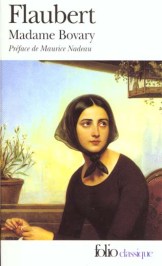 ad to come: I had to read Madame Bovary, what sort of literature-lover would I be otherwise? Reading this book was a duty, an obligation, a must. The book is a classic, a masterpiece, a peak in the history of western literature, one of the outmost examples of literary realism, a successful enhancement of Balzac’s works. Its very name means literature, with a capital “L”, the canon incarnate. Reading it is a pleasure: no evil regime in this world would be so cruel so as to deprive its subjects from the joys of a close acquaintance with Flaubert’s opus magnum, the justification of any life devoted to explore even the subtlest emotion ever felt by a human being. And, funnily enough, it all comes down to a woman’s whims.
ad to come: I had to read Madame Bovary, what sort of literature-lover would I be otherwise? Reading this book was a duty, an obligation, a must. The book is a classic, a masterpiece, a peak in the history of western literature, one of the outmost examples of literary realism, a successful enhancement of Balzac’s works. Its very name means literature, with a capital “L”, the canon incarnate. Reading it is a pleasure: no evil regime in this world would be so cruel so as to deprive its subjects from the joys of a close acquaintance with Flaubert’s opus magnum, the justification of any life devoted to explore even the subtlest emotion ever felt by a human being. And, funnily enough, it all comes down to a woman’s whims.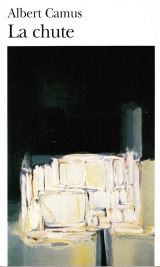
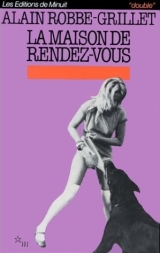
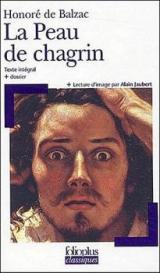
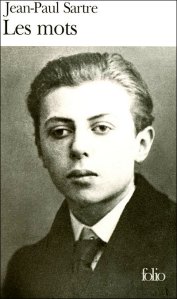 art this review, I do in fact feel obliged to start this review, by mentioning that a certain person whose avatar’s name is Krista, admitted in a review published in Goodreads back in 2008 that, although she did not enjoy Les Mots (The Words in English) as much as a smarter person might have done, the book caused in her a deep impression nonetheless, because she could not help but fearing that her little child, an avid reader like Sartre, will, and I am now quoting her “have an insane interior life like Sartre did. And a wall-eye (sic.).” She says that she is not very smart; well, I think that she is a genius. Bad reviews are always, always, the most amusing to read and often the most revealing. I love them (such a shame that I am a nice guy).
art this review, I do in fact feel obliged to start this review, by mentioning that a certain person whose avatar’s name is Krista, admitted in a review published in Goodreads back in 2008 that, although she did not enjoy Les Mots (The Words in English) as much as a smarter person might have done, the book caused in her a deep impression nonetheless, because she could not help but fearing that her little child, an avid reader like Sartre, will, and I am now quoting her “have an insane interior life like Sartre did. And a wall-eye (sic.).” She says that she is not very smart; well, I think that she is a genius. Bad reviews are always, always, the most amusing to read and often the most revealing. I love them (such a shame that I am a nice guy).